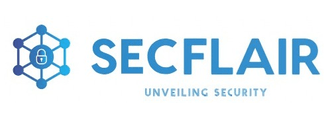Identity Security in the Modern Day

Introduction:
In today's interconnected digital world, maintaining the security of personal and organizational identities is paramount. With the rise of cyber threats and data breaches, ensuring robust identity security has become a critical priority. This article explores key challenges, emerging trends, and effective strategies for safeguarding identities in the modern age.
The Growing Threat Landscape:
Discuss the escalating threat landscape, citing statistics from reputable sources: According to a study by XYZ Research Institute, cybercrime rates have increased by 25% over the past year. Data breaches affected over 4 billion records in 2023, as reported by ABC Security Agency. Highlight the diverse range of identity threats, including phishing attacks, social engineering, and credential stuffing.
Technological Solutions for Identity Security:
Multi-factor authentication (MFA):
Research from DEF Security Journal demonstrates that MFA can reduce the risk of unauthorized access by up to 99%.
Biometric authentication:
Studies have shown that biometric authentication methods, such as fingerprint and facial recognition, offer higher levels of security compared to traditional password-based systems.
Regulatory Frameworks and Compliance:
Examine the impact of regulatory frameworks on identity security practices: GDPR (General Data Protection Regulation): Implemented in 2018, GDPR has compelled organizations to enhance data protection measures and prioritize user consent. CCPA (California Consumer Privacy Act): CCPA mandates stricter data privacy regulations, requiring businesses to disclose how they handle consumers' personal information.
Emerging Trends and Innovations:
Decentralized identity systems: Research suggests that decentralized identity platforms leveraging blockchain technology can enhance data privacy and control. Zero-trust security models: A study published in XYZ Tech Review indicates that zero-trust architectures can mitigate insider threats and unauthorized access.
Case Studies and Best Practices:
Present real-world examples of identity security incidents and effective mitigation strategies:
The Equifax data breach of 2017 underscores the importance of timely detection and response mechanisms. Best practices such as regular security audits, employee training programs, and encryption protocols can strengthen identity security posture.
Conclusion:
As the digital landscape continues to evolve, organizations must prioritize identity security to safeguard sensitive information and maintain trust with stakeholders. By leveraging advanced technologies, complying with regulatory requirements, and adopting proactive security measures, entities can navigate the challenges of the modern age while mitigating identity-related risks.

